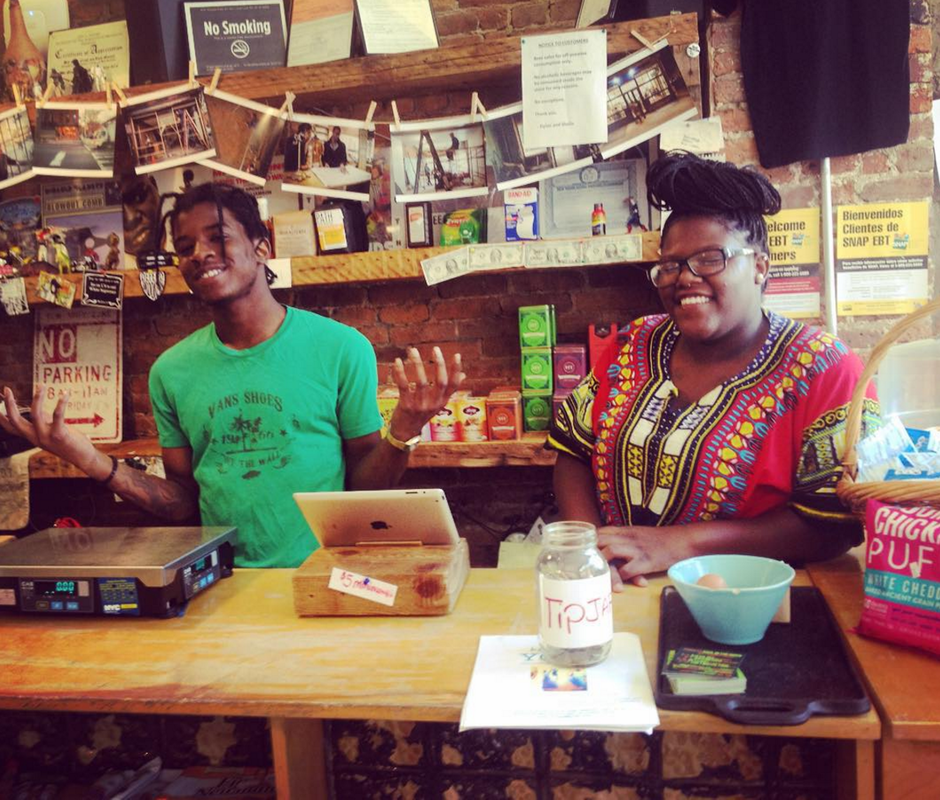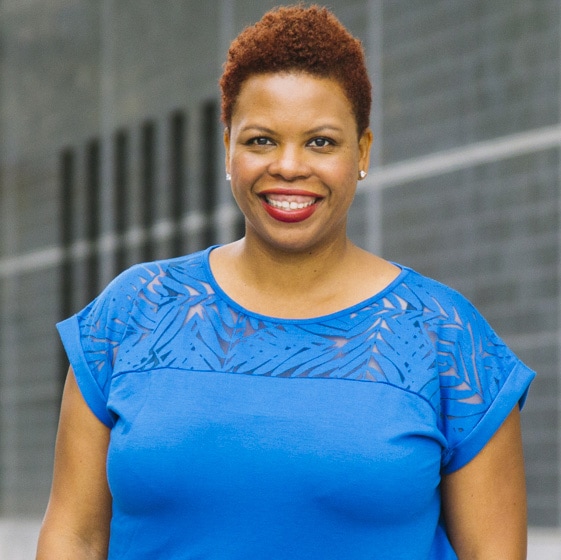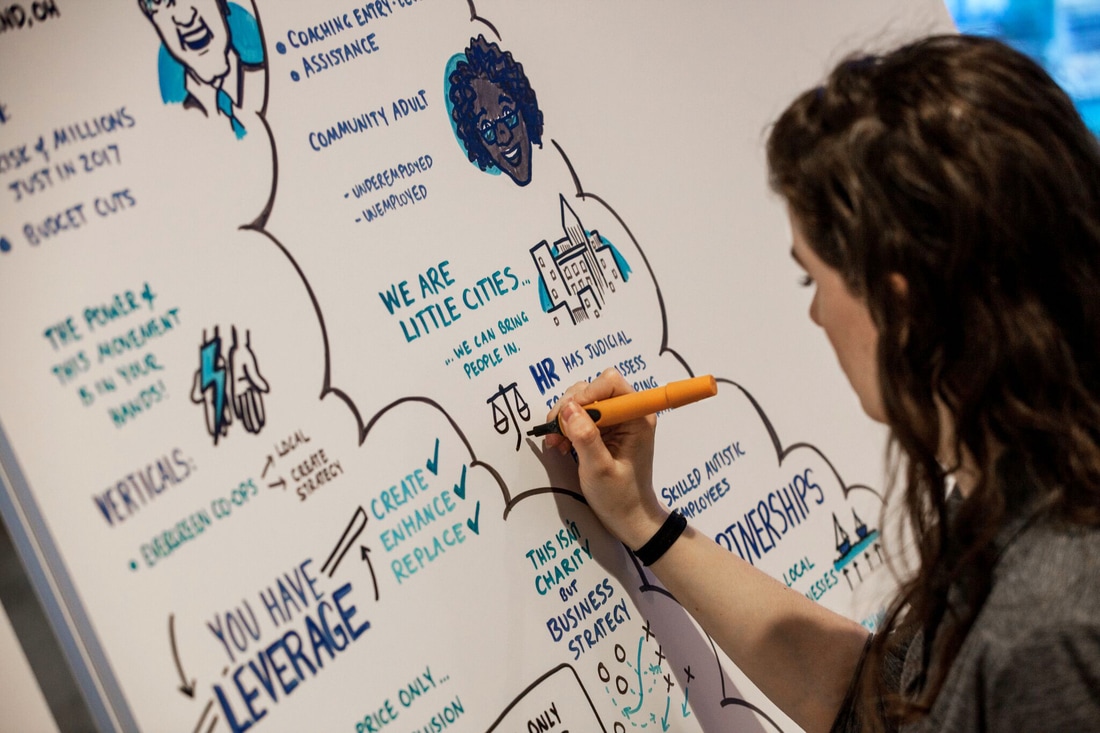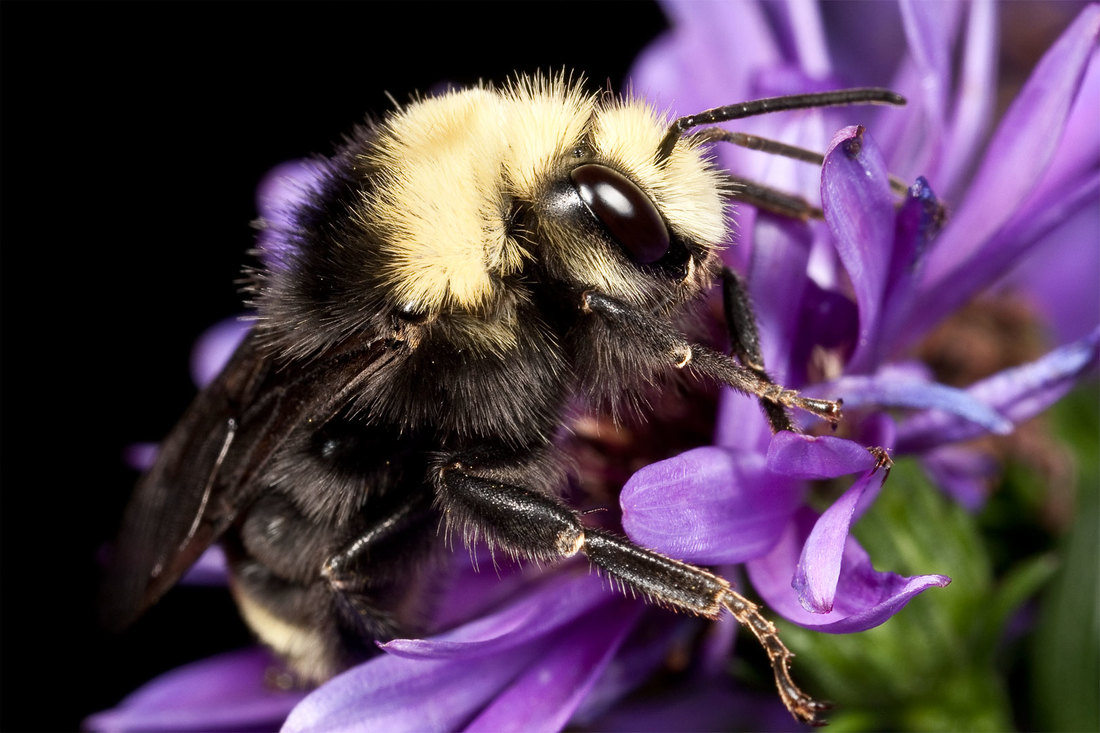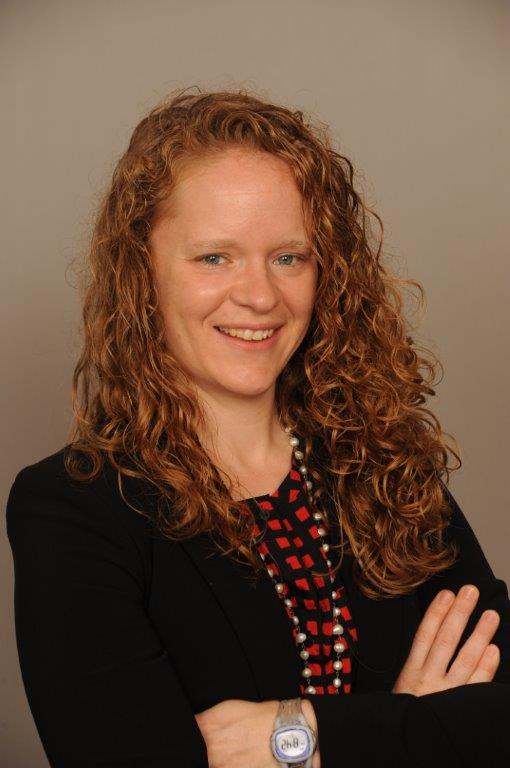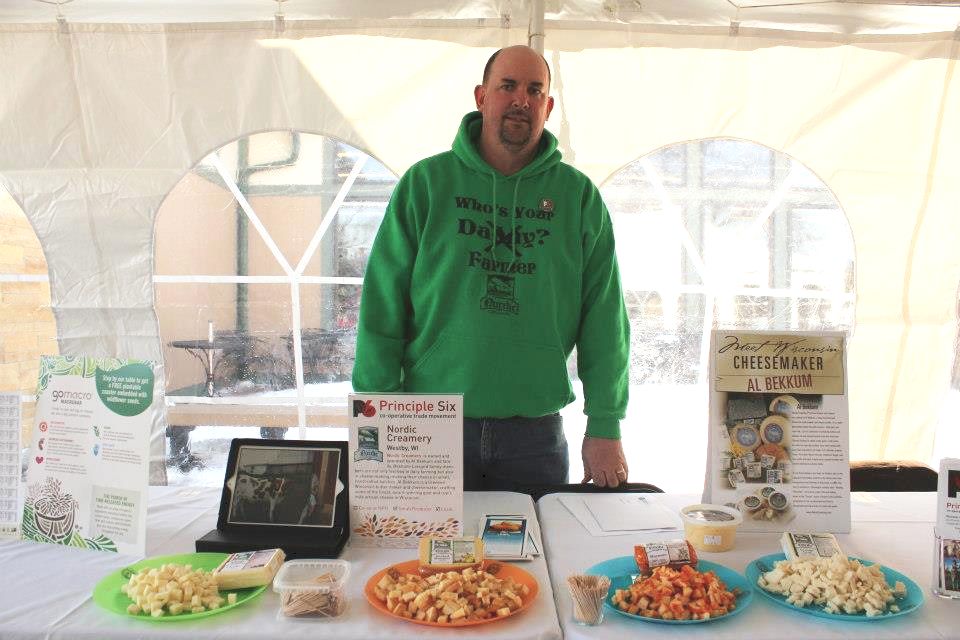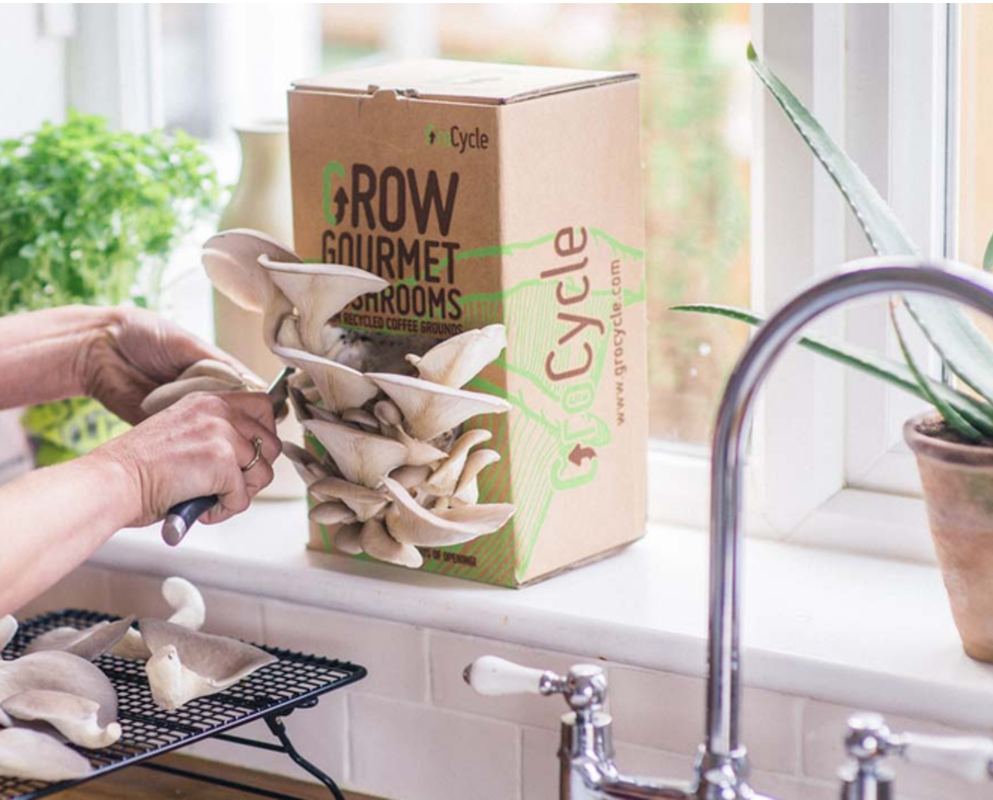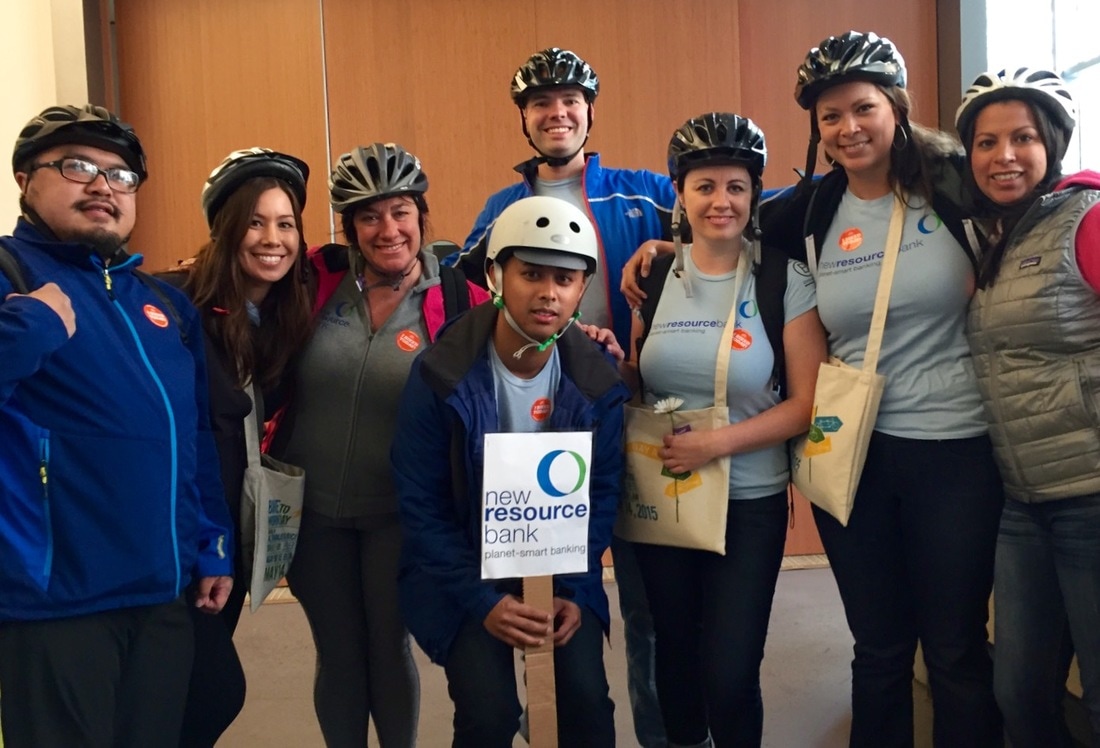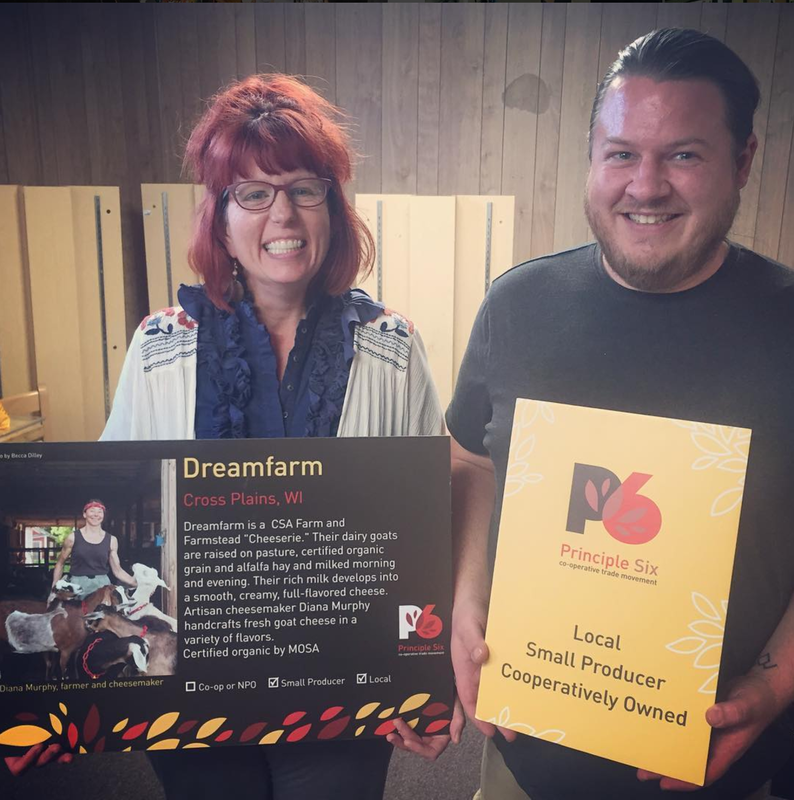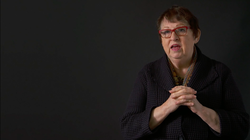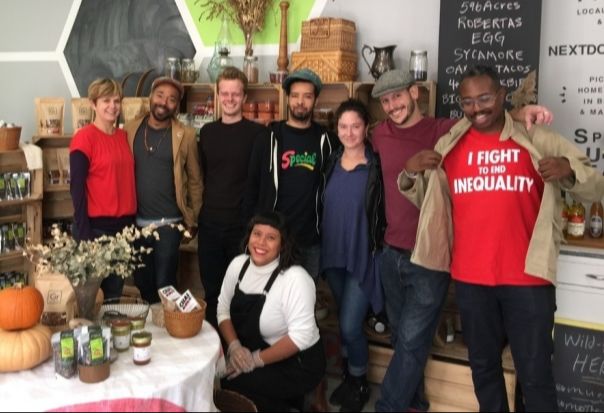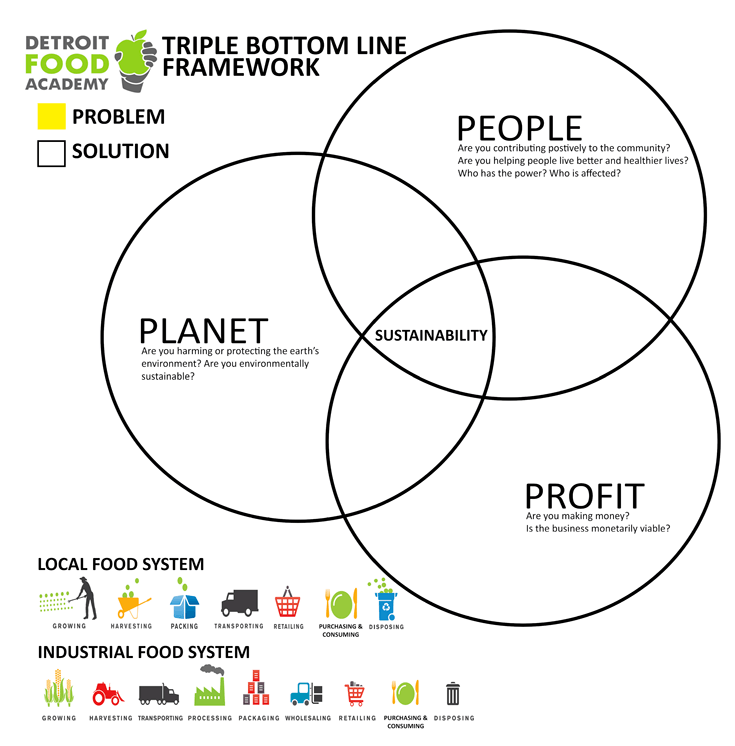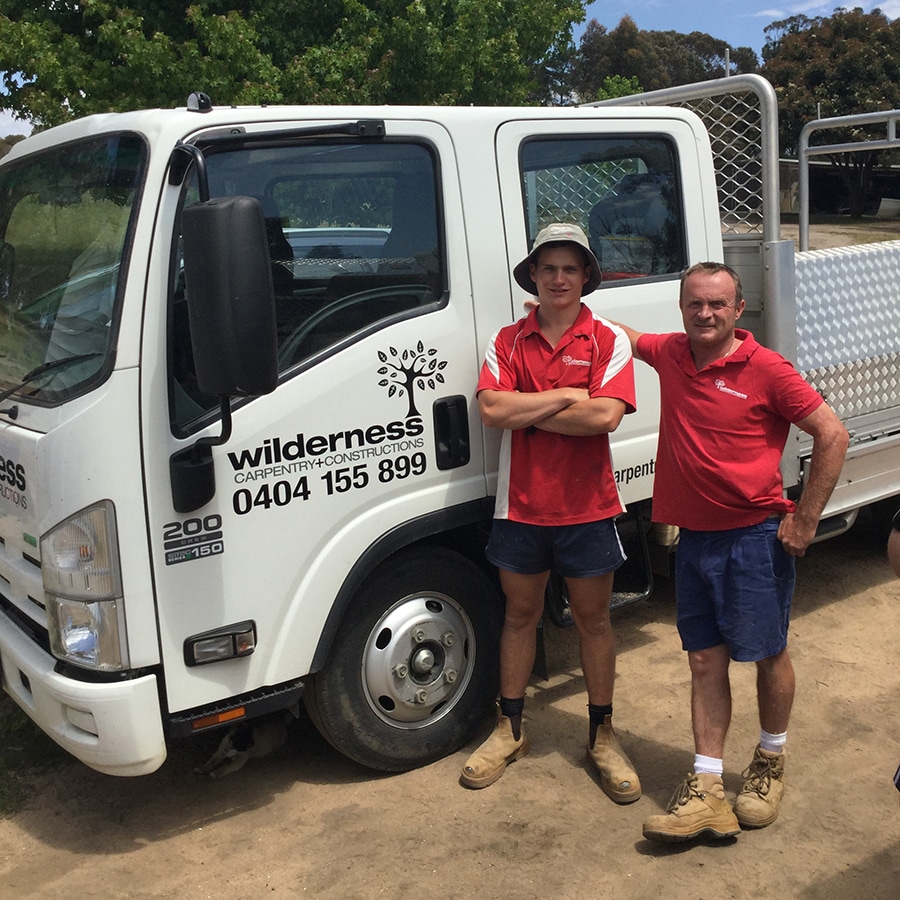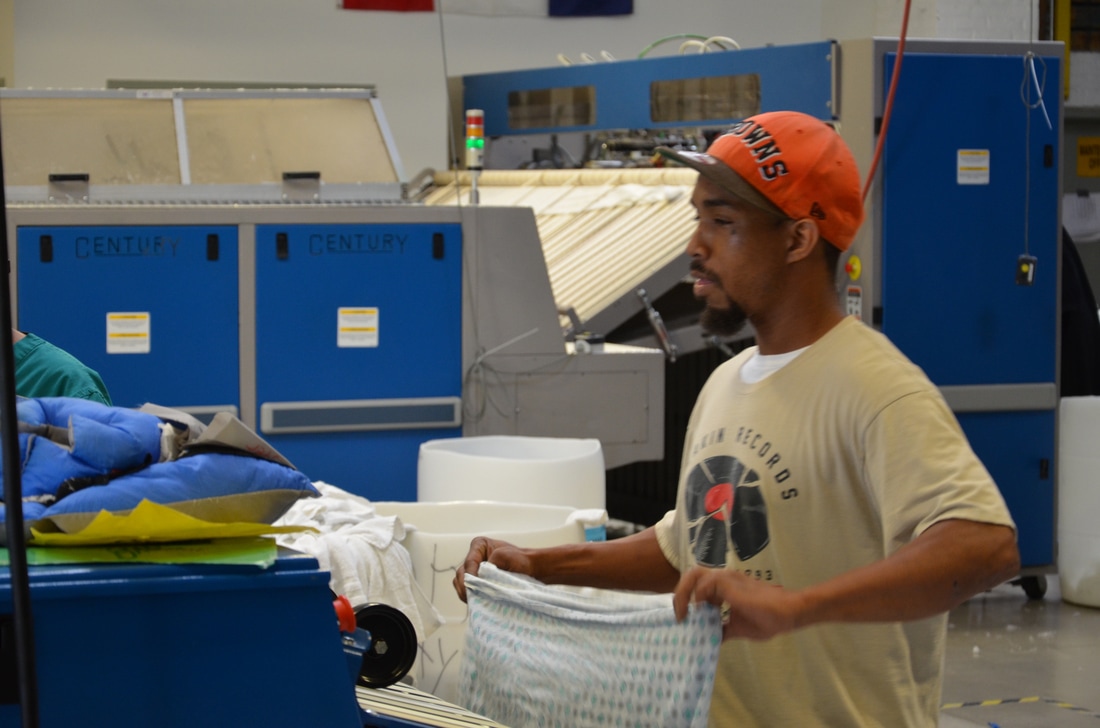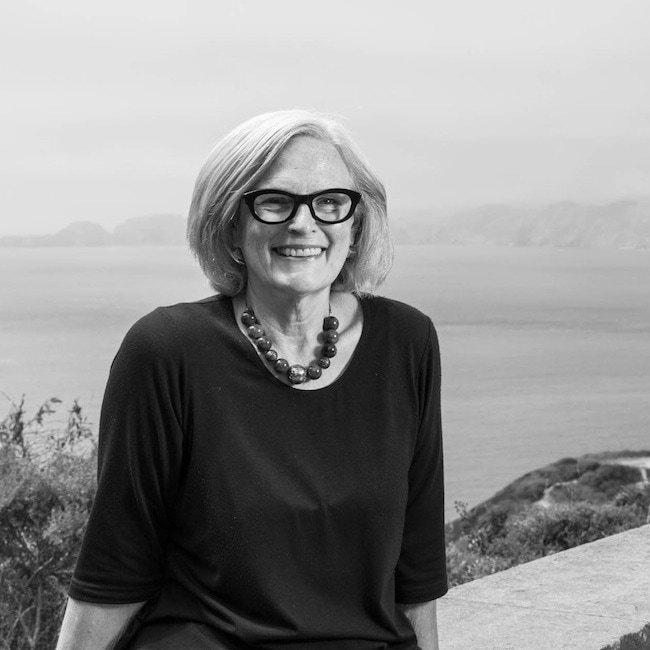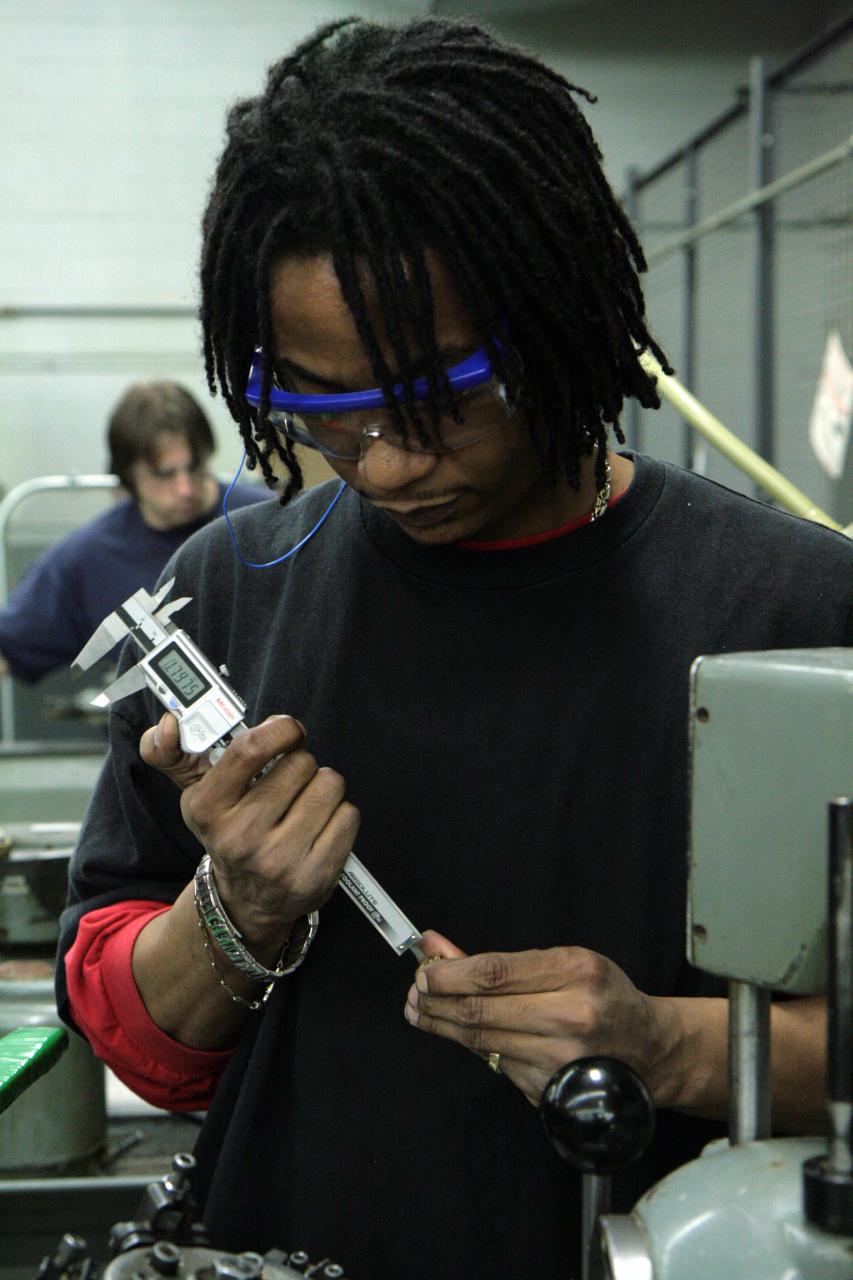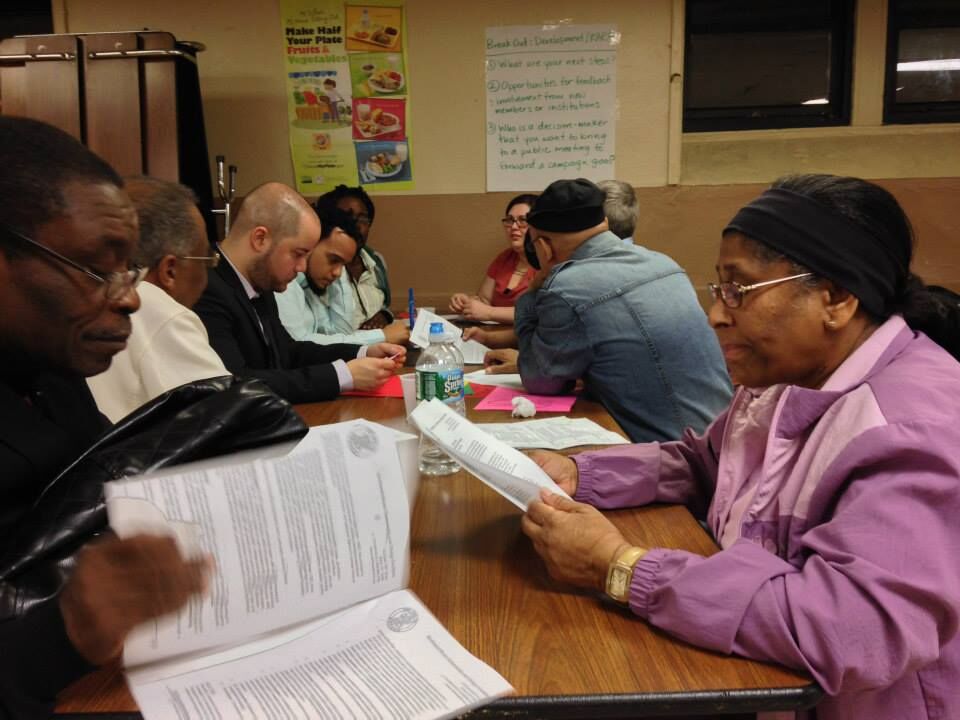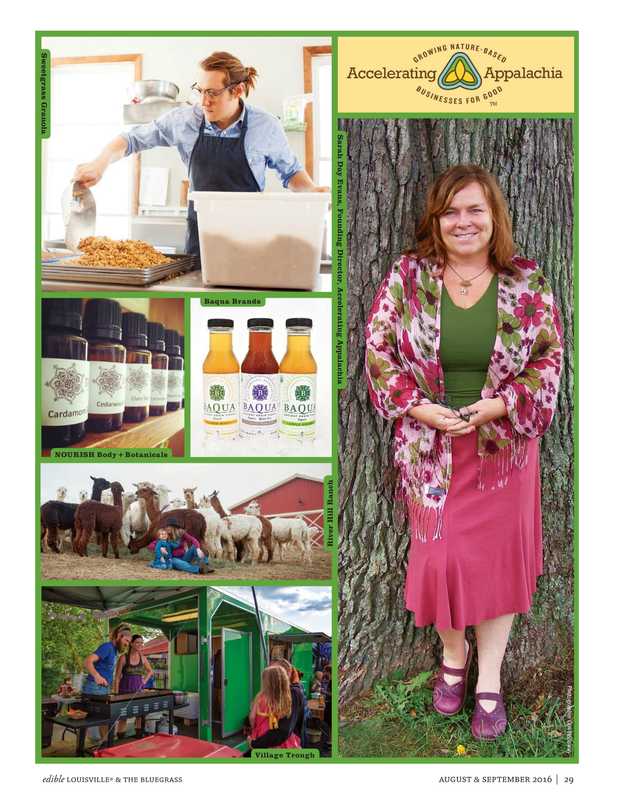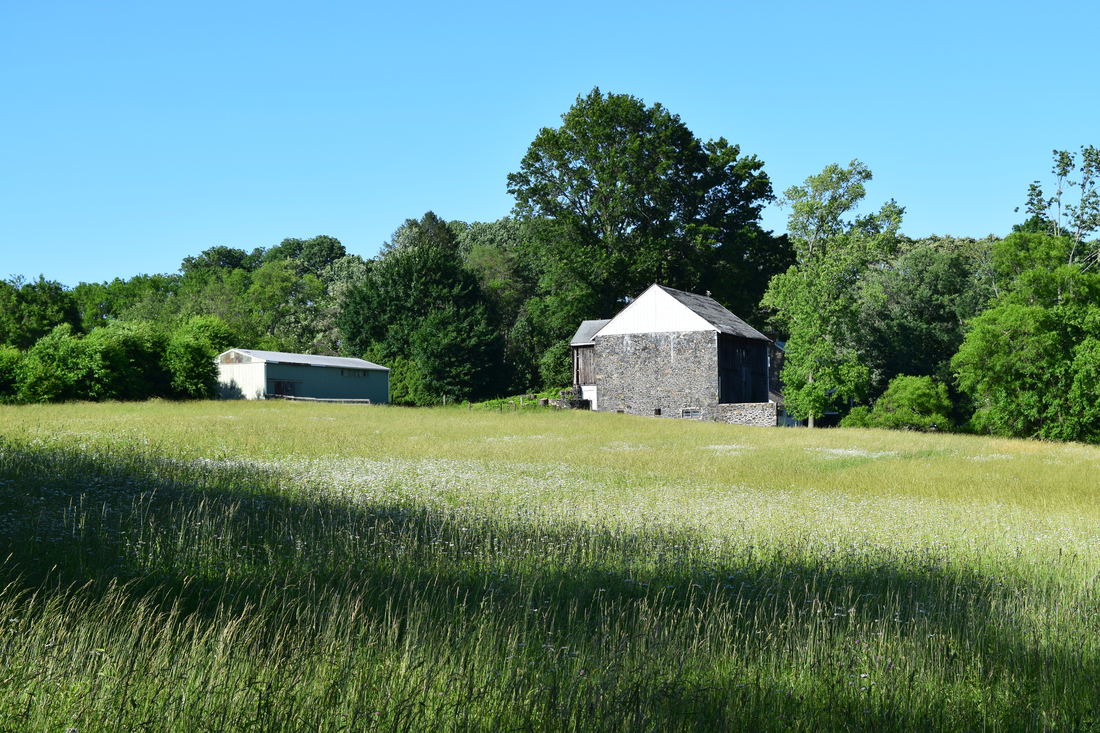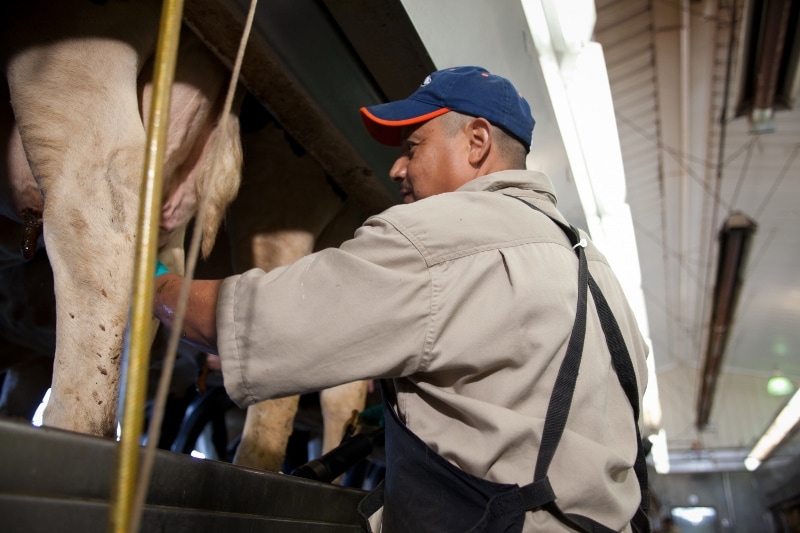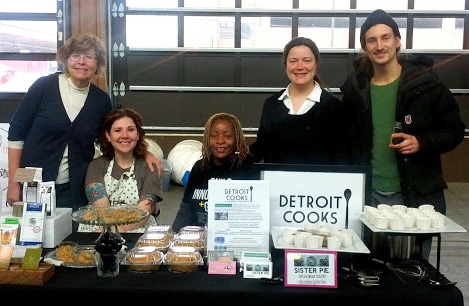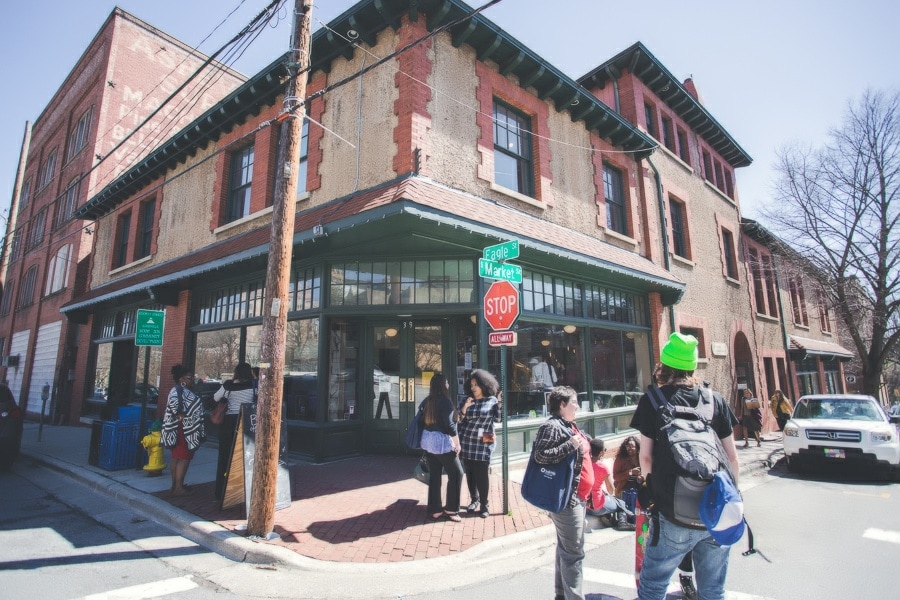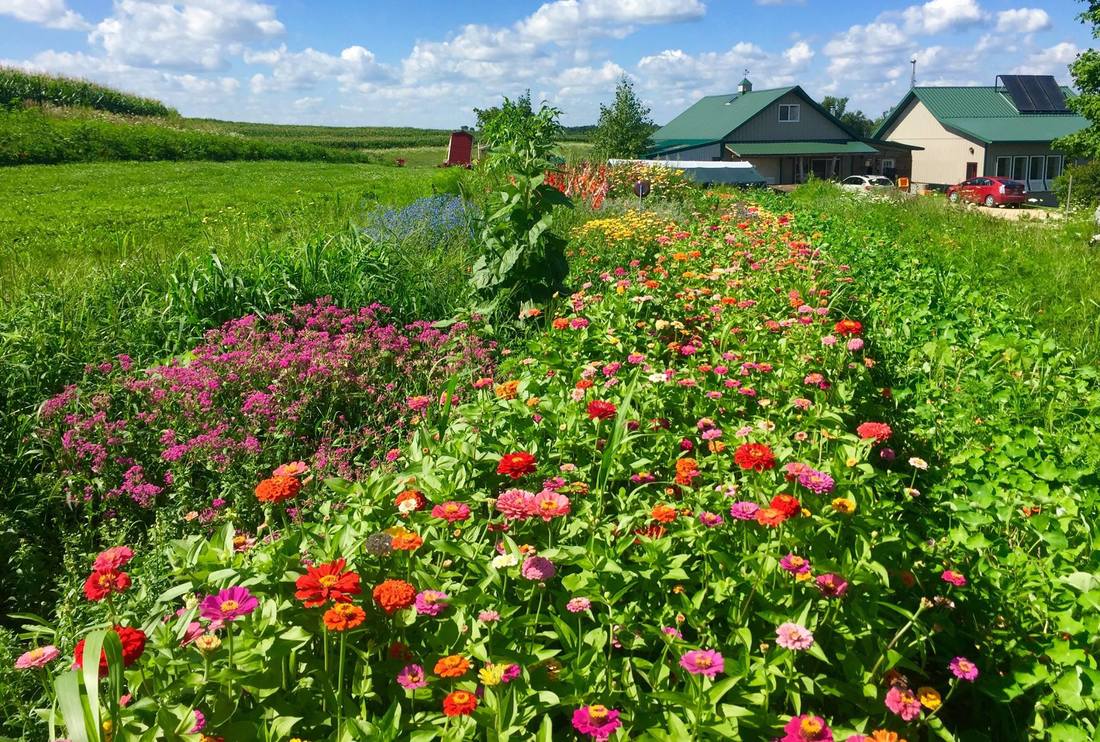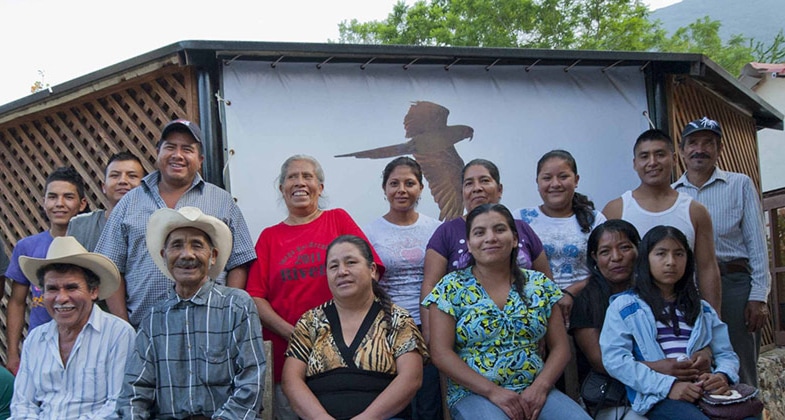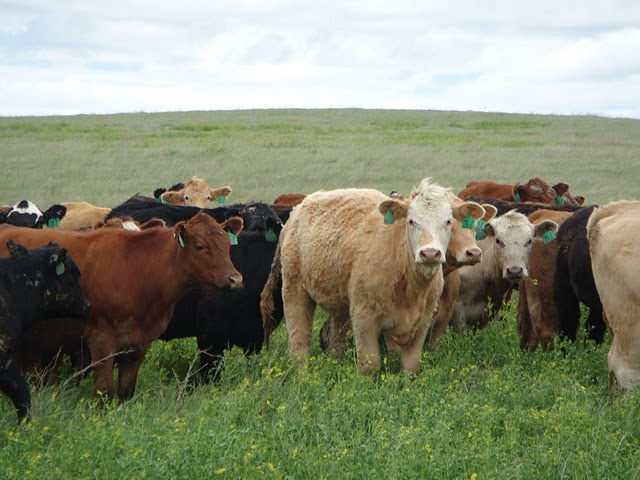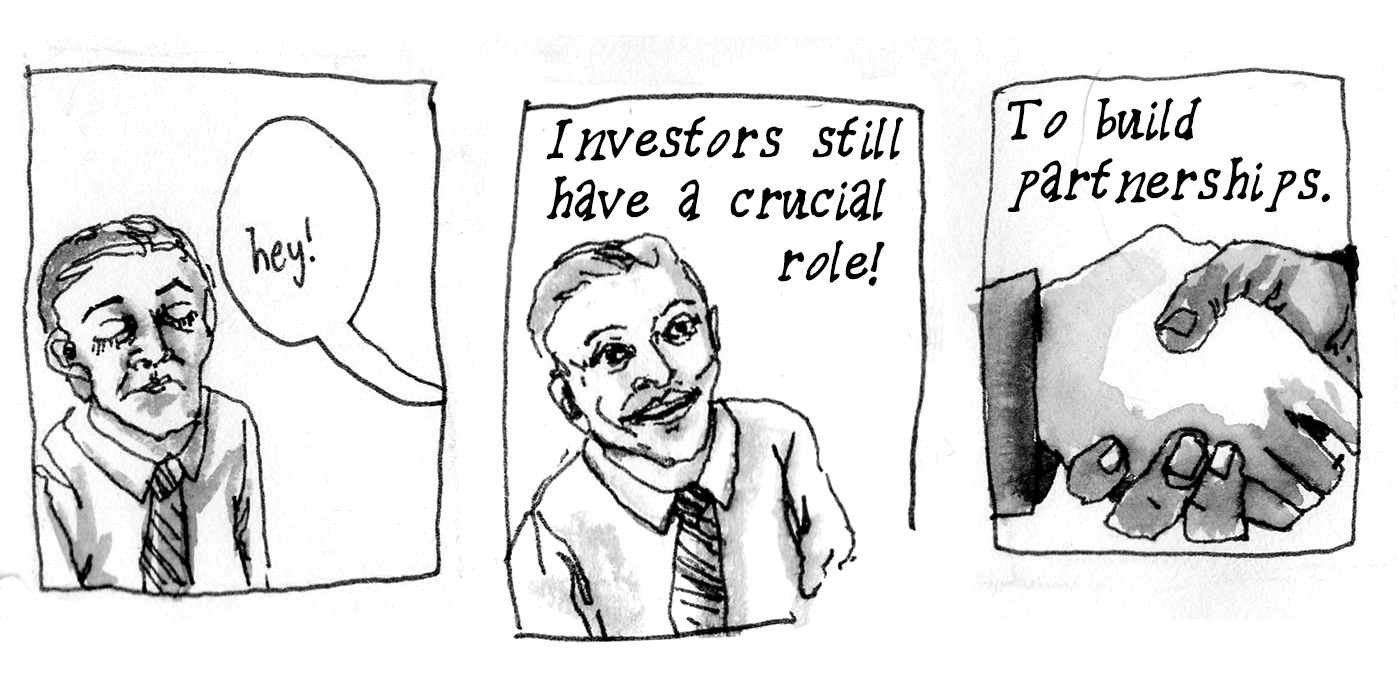REFLECTIONS FROM 39 FIELD GUIDE FRIENDS
RACHEL MAXWELL, COMMUNITY SOURCED CAPITAL
After a 10-month hiatus, CSC has come back to life as a non-profit. We have resumed taking applications for campaigns. I see our work—putting connection, trust, and love into finance—more important than ever.
DYLAN RICARDS,
BED STUY FRESH & LOCAL
Bed-Stuy Fresh and Local is an organic market whose mission is to strengthen the intersection of food, community and healthy living in Bed-Stuy, and we're now a cooperative! We have lots of new offerings in store for 2017, including natural supplements, body care products and an expanded bulk section! Come by and see what we are all about!
TOM EGGERT, WISCONSIN MICROFINANCE
Wisconsin Microfinance has continued to grow, expanding our work on the island of Bohol in the Philippines to other communities. We also are in early stages of conversations with another community in Haiti regarding expanding our presence there. We held major fundraisers in Madison and Milwaukee during the last year, and we continue to grow our donor base as more and more donors realize the power of microfinance.
LAUREN ELACHI,
LIVING BREAKWATERS
Living Breakwaters, located off the shoreline of Tottenville, Staten Island, has reached a major design milestone — 30 percent design completed — and is now moving forward with all design work expected to be completed by Spring 2018. At a January meeting the public learned more about the project’s progress and engaged with representatives from The Billion Oyster Project, Tottenville Civic Association, and Tottenville Historical Society, NY/NJ Baykeepers, and NYC Department of Parks.
JENNY KASSAN
I have been helping mission-driven entrepreneurs raise capital in creative ways for about ten years now and I’m happy to say that a large majority have been able to raise between $150,000 and several million from supportive investors that share their vision. They are paying returns in the range of 2-6 percent per year and designing exits that let them stay in control of their companies’ destinies.
TED HOWARD,
DEMOCRACY COLLABORATIVE
The Democracy Collaborative continued its drive to catalyze a fundamental transformation of the U.S. economy into a next system that is inclusive, just, and sustainable. Through our Next System Project we organized more than 20 teach-ins on college campuses across the country, released a series of papers on models of a new political economy beyond corporate capitalism, and launched a trans-Atlantic project on the future of money and banking.
ELISE FOGG,
SAVEBEES.ORG
Bees are facing more and more challenges in today’s world, including increasing habitat loss, acute and chronic pesticide poisoning, diseases and parasites spread by the commercial honey bee and bumble bee industries, the impacts of climate change, and the increasing intensification of conventional farming. Without pollinators, we face serious challenges to our food system and to our planet’s future.
ANNETTE SNEDEKER, SPIRITUAL GUIDE
After working with the Capital Institute at First Green Bank, I realized my calling to advocate for and invest in the underprivileged, marginalized, & misunderstood. I now serve at a local United Methodist church assisting the Sr. Pastor with sermon preparation, executive committee details, and leading studies on books such as 7, an experimental mutiny against excess, and Renting Lacy, A Story of America's Prostituted Children.
BJORN BERGMAN, VIROQUA FOOD CO-OP
As we continue to look towards the future, our Cooperative Board of Directors and General Manager have set us on a course to grow the Viroqua Food Co-op once again. In the spring of 2017, we break ground on an expansion that will double the size of the Co-op to better serve our community and meet their needs when it comes to local, organic and P6 food.
SANDY BISHOP,
LOPEZ COMMUNITY LAND TRUST
This January, LCLT celebrates a dream we have had since 1992 to establish a Lopez Island Farm Trust (LIFT) program with the purchase of Stonecrest Farm. This 46-acre farm will contribute to the food security and provide a perpetual, affordable, and regenerative local food system on Lopez Island. Stonecrest is envisioned as the first of many farms to be held in trust.
CHARLOTTE CADIEUX,
CO-CYCLE
Since Co-cycle I have continued to be involved with bicycles, education and advocacy work. Last summer, I and another woman launched a summer bike camp for children in Charlotte, NC. The camp received a great response and since then we have incorporated it as a non-profit. We are currently developing programs for 2017 and are partnering with Parks and Recreation.
TOM BALDERSTON, PATIENT CAPITAL COLLABORATIVE
We closed our fifth fund, Patient Capital Collaborative ’15, LP, in mid-2016. We’ve now completed our 30th investment across our five funds. All companies are in the impact arena and all came through Investors Circle and span various impact sectors.
ERIC JONG,
GROCYCLE
2016 has been a great year for GroCycle with our impact steadily increasing across the board. We've been busy recycling a lot of Exeter's coffee waste and giving thousands of people the chance to grow mushrooms in the simplest way at home.
FIRST GREEN BANK
The bank has a lot of good things planned for 2017, including the opening of a new headquarters building in downtown Orlando. A deep energy retrofit will be completed this summer in time for the opening. The bank continues to expand with branches in Altamonte Springs in Central Florida and Fort Lauderdale in South Florida, the latter a market highly receptive to values-based banking.
AMELIA BAXTER,
WHOLE TREES
Whole Trees has shipped product to national clients such as the San Diego Zoo and Morton Buildings, and launched 2 easy-entry products—a solar carport and a commercial pergola/shade structure. As part of its marketing and sales initiative, WholeTrees prides itself in educating regional and national interests to the benefits of regenerative building materials like WholeTrees.
VINCENT SICILIANO,
NEW RESOURCE BANK
As we begin 2017, we are entering a time of uncertainty. We are facing a political climate that will not be receptive to many of our values. We cannot count on government to fight climate change, build the new economy or support social justice. Where does that leave new economy business leaders and changemakers like you and us?
ALLISON HERMES,
P6 COOPERATIVE TRADE MOVEMENT
The growth of the P6 movement is indicative of the need for a program that is dedicated to championing small farmers and producers. At a time when consumerism across all industries is racing to the bottom, P6 is doing the opposite. This is a movement that represents cooperatives highest values in addition to acting as a tool for keeping those highest values at the forefront of everyday business.
CAROL SANFORD,
YEAR IN THE LIFE MENTOR
In 2016 I initiated The Regenerative Business Summit in Seattle for business leaders and business unit leaders who want to grow their business within a Regenerative paradigm. Next year we’ll be partnering with Babson's Lewis Center at an East Coast location. I also initiated a business development series for small businesses and business units interested in regenerative business practice.
WORKING WORLD
2016 was a year of growth and collaboration for The Working World. Two new Project Officers and a Communications Officer were hired, and the nonprofit financial institution also grew its investment fund to $5 million, increasing its capacity to support new cooperative projects in NYC and beyond. It’s now embarking on a $20 million capital campaign, aiming to increase capacity for more large-scale projects in the future.
SUNRISE BANKS,
DAVID REILING
The social entrepreneurial life at Sunrise Banks is motivating, fascinating, and full of fear and excitement. The Trump administration has its blessings and curses for all community banks. Regulatory relief would be welcome after a decade of piling on. Lower income tax rates would allow us to retain more earnings (capital) and to grow faster (aka lend more money). "Inflationary Trump" (aka interest rate increases) would actually be a welcome development for Sunrise. But the Trump "curses" are many.
MARGO DALAL,
CO-CYCLE
I am working as a community organizer in Detroit. I coordinate a small fellowship program for Detroit Food Academy; am the membership coordinator for Souldarity; work towards foreclosure prevention for Tricycle Collective; and am collectively working to establish a Detroit-based financial cooperative. I am also organizing the first Detroit Kite Festival in July! Working and living in Detroit is truly empowering, I am challenged every day.
SAM MOORE,
BENDIGO COMMUNITY BANK MODEL
Rupanyup, home to the first Community Bank branch, has reversed its decline and the branch is part of that success. In 1998 when the community approached us to open the branch, the population was below 400, the town was unbanked, Main Street was empty, and the school had fewer than 30 children. The school now has more than 50 students as younger parents have moved back onto the farms, and there are now has more than 550 residents.
JOHN MCMICKEN,
EVERGREEN COOPERATIVES
2016 was a record year for the Evergreen Cooperative Laundry, now employing 48. Significant profit distributions are forthcoming. We acquired a local competitor, and are now faced with capacity issues! Sales at Green City Growers greenhouse increased by 25 percent over 2015. We are now at 80 percent capacity and approaching breakeven (forecasted for early 2017), and are wrapping up financing on a complete LED lighting retrofit.
LESLIE CHRISTIAN,
OUTSIDE INVESTMENTS
In our current political situation, we are reminded daily of the ugly underbelly of our economic and financial systems. It is ever more urgent to step outside the mainstream and away from the conventional to question what we are doing and to envision and create financial solutions that are fair and responsible.
SCOTT BUDDE,
MAINE HARVEST CREDIT PROJECT
We have come together to support our state's hardest working small farms, brewers, fisherman and others working in Maine's new food economy. We have strong partners, strong donors and a growing group of engaged and enthusiastic supporters— our goal is to keep this momentum going. Creating Maine Harvest will allow this growing sector to tap Maine’s $30 billion market of US government-guaranteed retail deposits to fund its loan portfolio.
DAN SWINNEY,
MANUFACTURING RENAISSANCE COUNCIL
It’s been a strong year for Manufacturing Renaissance and we expect the coming year to be even stronger. At our signature project—the Manufacturing Connect program at Austin College and Career Academy—130 students have enrolled in this small school in a program that will prepare them for meaningful careers in manufacturing. Our design is to re-connect the public education system to the manufacturing sector as a key step in systemic change.
SANDRA LOBO,
BCDI
There is lots going on in our collective work around economic democracy! One of the collaboration projects that NWBCCC is working on with BCDI and other partners is the Healthy Buildings Program, a cross-sector initiative addressing health, housing, and wealth in a holistic approach with a diverse set of partners. After several years of working through conceptualization, planning and implementation, we have launched a pilot phase to work out the kinks and learn from this initial phase hoping to go to scale in the next round with significant more investment.
SARA DAY EVANS,
ACCELERATING APPALACHIA
Southern and Central Appalachia have recently been recognized to be the most diverse foodshed in North America and northern Mexico, and our nature-based businesses in food, fiber and forests are a direct reflection of this bio and food diversity. Our businesses regenerate people and place while serving our basic needs for food, shelter, clothing and wellness.
MARK PHILLIPS,
UNLOCKING PLACE IN THE BRANDYWINE VALLEY
Over the past six months, I have had the extraordinary privilege to live and work as a temporary intern at Genesis Farm in northwest New Jersey, the ideal place to learn how the new scientific understanding of the universe is the primary source for re-imagining everything from economics to anthropology.
ALDO LEOPOLD FOUNDATION
We’ve raised over $3.4 million of the $5 million goal for our Futures Leaders Campaign. The Campaign is our effort to build upon and grow a successful and influential program that has produced 80 alumni across the country in positions of influence in not-for-profits, academia, governmental agencies, and private industry. It will support fellows at different career stages, from collegiate to mid-career.
JANE HATLEY,
SELF-HELP CREDIT UNION
Self-Help in WNC is working on several new initiatives, including the development (with two other small business focused CDFI's) of a loan guarantee fund targeted at minority- and low-income-owned businesses. The City of Asheville has committed seed funding to this project, so we are very excited about it.
KEN McCARTY,
MCCARTY FAMILY FARMS
The McCarty Family Farms family knows and understands that bold moves are sometimes viewed with skepticism; but also that bold moves are at times what is needed to change our community, our industry and our world.
DEVITA DAVISON,
FOOD LAB DETROIT
At FoodLab we believe that when investing in underrepresented entrepreneurs, it takes more than a loan to make a business successful. Our member businesses need capital; but they also need social networks and a support system, our holistic approach to building up businesses is what sets FoodLab apart.
TORIL BOOKER FISHER
SECOND CLOUD ON THE LEFT FARM
In this audio narrative, “Sharing the Sugars: Truth be Told,” an artist and farmer we highlighted in our story of "The Driftless" shares her own story of laughter, love, and loss. In these divisive times, she pays homage to Viroqua, Wisconsin, and reminds her community: "we have each other."
GRUPO ECOLOGICO
Grupo Ecologico implemented many regenerative practices and educational programs this year—from agricultural land regeneration activities, to quantifying the carbon sequestration of our optimally managed land, to our “National Camp for Ecological Leaders.”
VIVA FARMS
Since founding members Ethan and Sarita Schaffer departed in 2014, the programs at Viva Farms have continued to evolve. We have incubated a total of 28 farm businesses since 2010, and our farmers enjoyed over $180,000 in sales in 2016. Although we were fully leased for the first time in 2016 and remain so in 2017, with the launch of one farmer in 2016 we are now able to bring in some new incubators.
JIM HOWELL,
GRASSLANDS LLC
It’s been a tough year, weather-wise, across our Grasslands-managed ranches in 2016, and when years get tough, it tends to coincide with human reactions that are both inspiring and disconcerting, sometimes from the same people! The droughts we’ve endured across our Northern Great Plains and New Zealand properties, and the record wet winter we were battling a year ago in Florida, have resulted in a lot of aggregate stress.
KATE POOLE,
REGENERATIVE FINANCE
This fall and winter have led to intense shifts with Kate Poole and with her collective Regenerative Finance. The election was a brutal reminder that wealth—even inherited wealth—is an accepted stand-in for intelligence, experience, and expertise. All the wealthy—including myself—will benefit financially from the tax and policy changes that this administration has planned. We need to take those undeserved financial gains and give them to the leaders in Muslim communities, trans communities, poor communities, black and brown communities, and immigrant communities as they try to protect themselves and build resilience.

GENESEE CO-OP FEDERAL CREDIT UNION
Founded over 35 years ago by members of a local food co-op who sought to create an alternate finance and banking institution in their community, the Genesee Co-Op Federal Credit Union moved out of the second floor of the food co-op and into the South West Ridge Urban Village of Rochester. That was the beginning of the village's revitalization and an evolution of the credit union itself as it came to serve a growing refugee community. What has never changed is the credit union's regenerative ethic, which is embedded into every product and service it offers.
THE REDD ON SALMON
The Redd on Salmon Street—located in the Central Eastside industrial district of Portland, Oregon—is a food hub unlike any other, and with a wildly ambitious mission: to make regeneratively produced, locally sourced food a mainstay of the regional diet. Redd's mission-architect, Amanda Oborne, was just named one of Fast Company's Most Creative People in Business.

LOCAL FIRST ARIZONA
Successful "Go-Local" campaigns tend to spring up in progressive communities. But that’s not always the case. Local First Arizona has managed to build one of the most successful go-local movements in the country in a traditionally conservative state by avoiding politically charged language. Instead it empowers residents to create the pride of place they long for by supporting one-of-a-kind, entrepreneurial businesses that create jobs and keep profits local.
|
|
Rachel Maxwell, Community-Sourced Capital
We put the Community-Sourced Capital platform on hold last February to take some time to discern next steps. We had run out of funding and could not responsibly take on more campaigns. Our revenues only pay for one part-timer to run the back end. We decided that person would be me. So Casey and the rest of the team have moved on to new ventures.
After taking the time to think and consider what to do, I decided it would be worth bringing CSC back to life as a non-profit. And I am happy to say that after a 10-month hiatus, we have resumed taking applications for campaigns and will be relaunching shortly. I see our work—putting connection, trust, and love into finance—more important than ever. Enabling communities to finance the businesses they value most with our straightforward, transparent lending system brings opportunity to many community businesses that wouldn't otherwise have it. Immediately following the election I was contacted by a Squareholder who was interested in whether or not we might be able to help finance community solar projects—she was sure the programs for such things would be gone soon! Left: Watch Rachel's TedX talk. READ THE ORIGINAL FIELD GUIDE STORY |
|
Dylan Ricards, Bed Stuy Fresh and Local
Bed-Stuy Fresh and Local is now a worker-owned cooperative! We're an organic market whose mission is to strengthen the intersection of food, community, and healthy living in Bed-Stuy. We have lots of new offerings in store for 2017, including natural supplements, body care products and an expanded bulk section! Come by and see what we are all about!
READ THE ORIGINAL FIELD GUIDE STORY |
|
|
Tom Eggert, Wisconsin Microfinance
Wisconsin Microfinance has continued to grow, expanding our work on the island of Bohol in the Philippines to other communities. We are also in early stages of conversations with another community in Haiti regarding expanding our presence there. We held major fundraisers in Madison and Milwaukee during the last year, and we continue to grow our donor base as more and more donors realize the power of microfinance. Left: Watch Tom's Madison TedX talk.
READ THE ORIGINAL FIELD GUIDE STORY |
|
Lauren Elachi, Living Breakwaters
Living Breakwaters, located off the shoreline of Tottenville, Staten Island, has reached a major design milestone – 30 percent design — and is now moving forward, with all design work expected to be completed by Spring 2018. At a January meeting the public learned more about the project’s progress and engaged with representatives from The Billion Oyster Project, Tottenville Civic Association, Tottenville Historical Society, NY/NJ Baykeepers, and NYC Department of Parks.
READ THE ORIGINAL FIELD GUIDE STORY |
|
Jenny helped Lynn Johnson, above, raise funds to grow her girls empowerment business.
|
Jenny Kassan, Finance Innovator
I have been helping mission-driven entrepreneurs raise capital in creative ways for about ten years now and I’m happy to say that a large majority have been able to raise between $150,000 and several million from supportive investors that share their vision. They are paying returns in the range of 2-6 percent per year and designing exits that let them stay in control of their companies’ destiny.
I am especially focused on helping women entrepreneurs raise capital because I find that women can face unique challenges. I just hired a consultant to help me really dive in to the data to get more clarity on what interventions could help mission-driven female founders have more success with raising capital. Finally, I partnered with LIFT Economy to raise a nonprofit investment fund called the Force for Good Fund, which is open to anyone to invest in and recently made its first investment into Spotlight: Girls, a company that empowers women and girls and is run by a woman of color. I believe impact investing by unaccredited investors will grow as more options become available, thanks to the JOBS Act, and as millennials search for mission-aligned alternatives to the stock market. In 2017 I will be contributing a series of posts, as a Democracy Collaborative Fellow, based on themes found in my forthcoming book on ways in which businesses in the New Economy can raise capital while not concentrating wealth in fewer and fewer hands and requiring fast growth at any cost. |
|
Ted Howard, Executive Direcor, Democracy Collaborative
Throughout 2016, The Democracy Collaborative continued to drive forward in its mission to catalyze a fundamental transformation of the U.S. economy into a next system that is inclusive, just, and sustainable. Through our Next System Project, we organized more than 20 teach-ins on college campuses across the country, released a series of papers by leading thinkers and activists on models of a new political economy beyond corporate capitalism, and launched a trans-Atlantic project on the future of money and banking.
Within our Engaged Practice Division, we worked with city governments, local philanthropy, and anchor institutions to develop and implement inclusive and equitable models of community wealth building (inspired by the Evergreen Cooperatives of Cleveland, Ohio) that can provide decent work, family-supporting wages, and ownership opportunities for workers. We also launched “50 by 50,” a national initiative to expand employee ownership to 50 million Americans by the year 2050. One of our fastest developing areas of work was with hospitals and health systems, which nationally represent about $1 trillion in place-based economic activity. In December 2016, we convened 40 of the largest health systems in the country to explore strategies for leveraging their economic power by expressing their “anchor mission.” In 2017 and beyond, we will work with these healthcare institutions in an ongoing community of practice to support them in inclusive and diverse hiring, procurement and investment (hospitaltoolkits.org). The Democracy Collaborative has also developed the Rolling Back Inclusion tracker that will provide continuous updates regarding the status of inclusive community development programs. As our friends and allies learn of new government attempts to diminish support for community wealth building, we are asking them to report them to us at rollingbackinclusion@democracycollaborative.org. Follow developments on twitter with the hashtag #RollingBackInclusion. READ THE FIELD GUIDE EVERGREEN COOPERATIVES STORY |
|
Elise Fogg, Savebees.org
Bees are facing more and more challenges in today’s world, including increasing habitat loss, acute and chronic pesticide poisoning, diseases and parasites spread by the commercial honey bee and bumble bee industries, the impacts of climate change, and the increasing intensification of conventional farming. Without pollinators, we face serious challenges to our food system and to our planet’s future.
At the end of last year, the U.S. Fish & Wildlife Service added the first bees to the endangered species list (seven bee species endemic to Hawaii). On January 11, the Service added the first bumble bee (the rusty-patched bumble bee) to the list. This is so important because conservation efforts and remediation to help that bee will help many of our other 4,000 bees in the United States. There are about 25,000 species of bee worldwide, around 250 bumble bees. But everyone can do something to help save bees! These pollinators play such a vital role in so many ecosystems. Plant wildflowers and flowering trees wherever you can (home gardens, window boxes, workplaces), provide nesting areas for native bees (most bees are solitary and dig burrows in the ground, or nest in old stems or holes in bits of wood), support organic farming, and encourage others in your community to do the same. Learn more about what you can do to help at savebees.org READ THE ORIGINAL FIELD GUIDE STORY |
|
Annette Snedeker, Spiritual Guide, First Green Bank Year in the Life Project
After working with the Capital Institute at First Green Bank, I realized my calling to advocate for and invest in the underprivileged, marginalized, & misunderstood. I now serve at a local United Methodist church assisting the Sr. Pastor with sermon preparation, executive committee details, and leading studies on books such as 7, an Experimental Mutiny Against Excess, and Renting Lacy, A Story of America's Prostituted Children.
I frequently blog, attend seminars, and even speak at events aimed at relieving victims who have been kidnapped and forced into the unimaginable life of sex trafficking, a modern form of sexual abuse and slavery. Trafficking takes place in dark corners, beautiful hotels, and during sporting events all over the country and our country is in need of abolitionists who refuse to allow this terrible abuse to continue to young women and children. My goal is to not only help prevent it from happening in the first place, but to also support the survivors with gainful employment through relief ministries and opportunities to connect to local businesses and their owners. Hear Annette talk about her work at First Green Bank |
|
Bjorn Bergman, Viroqua Food Co-op
As we continue to look towards the future, our Cooperative Board of Directors and General Manager have set us on a course to grow the Viroqua Food Co-op once again. In the spring of 2017, we break ground on an expansion that will double the size of the Co-op to better serve our community and meet their needs when it comes to local, organic and P6 food.
Viroqua Food Co-op continues to be a big success in many ways. Here are some statistics from our most recent completed Fiscal Year (2015-2016).
To keep up to speed with the expansion, check out our Expansion Blog READ THE ORIGINAL FIELD GUIDE STORY |
|
|
Sandy Bishop, Lopez Island Community Land Trust
This January, LCLT celebrates a dream we have had since 1992: to establish a Lopez Island Farm Trust (LIFT) program with the purchase of Stonecrest Farm. This 46-acre farm will contribute to the food security and provide a perpetual, affordable, and regenerative local food system on Lopez Island. Stonecrest is envisioned as the first of many farms to be held in trust.
The 2016 election triggered many feelings, including deep grief. Experience has taught me that deep grief expressed can give rise to a creative force. I can feel that force rising within me and all around me. There is also focus of intention that has been ignited in our community. Dozens of people and groups are calling for actions, and inviting others to join in thoughtful discourse. The day after the national election, LCLT was featured on a Transition US REconomy Project tele-seminar after being chosen as one of “25 Enterprises that Build Resilience.” It was hard to show up for work that day but as soon as we got on the phone with others from around the country we knew it was the right thing to do. The conversation focused on building resilience and its many forms. READ THE FIELD GUIDE ORIGINAL STORY |
|
Charlotte Cadieux, Co-Cycle
Since Co-Cycle I have continued to be involved with bicycles, education, and advocacy work. Last summer, I and another woman launched a summer bike camp for children in Charlotte, NC. The camp received a great response and since then we have incorporated it as a non-profit. We are currently developing programs for 2017 and are partnering with Parks and Recreation.
Through this work I am learning there are many like-minded individuals in North Carolina and we are building relationships with advocates and educators all over the state. During the year, I offered by-donation mechanics classes for women and taught the local earn-a-bike class at our community recyclery. The movement is very grassroots, but a lot of development that's happening is to encourage more bikes, walking, and public transit, which is neat. On a local level the DOT has included bikes in their development plans and the city of Charlotte sees the benefit of making the city more pedestrian and bike friendly. On a more personal note, I was able to convince a few of my newer-to-biking friends to come on a mini bike tour over Thanksgiving. With the support of another bike friend, we made it happen and spent Thanksgiving exploring the countryside of North Carolina! READ THE ORIGINAL FIELD GUIDE C0-CYCLE STORY |
|
Tom Balderston, Patient Capital Collaborative
We closed our fifth fund, Patient Capital Collaborative ’15, LP, in mid-2016. We’ve now completed our 30th investment across our five funds. All companies are in the impact arena and all came through Investors Circle, and span various impact sectors.
Since we last were in touch we also had a successful exit from portfolio company Locus Energy, which is in the business of remote monitoring of solar energy systems. It was acquired by Genscape and broadens Genscape’s product offerings in the energy information arena. Locus has continued its strong growth under Genscape ownership. READ THE ORIGINAL FIELD GUIDE STORY |
|
Eric Jong, Gro-Cycle
2016 has been a great year for GroCycle, with our impact steadily increasing across the board. We've been busy recycling a lot of Exeter's coffee waste and giving thousands of people the chance to grow mushrooms in the simplest way at home.
The largest impact however has been to help others get started on the path of growing mushrooms in a low impact way. We've helped set up a project in Western Australia called LifeCykel and are also very pleased to see hundreds of people taking our online course. In this way we hope that there will be similar projects the world over. READ THE ORIGINAL FIELD GUIDE STORY |
|
|
Robbie Gossett reports on First Green Bank
The bank has a lot of good things planned for 2017, including the opening of a new headquarters building in downtown Orlando. A deep energy retrofit will be completed this summer in time for the opening. The bank continues to expand with branches in Altamonte Springs in Central Florida and Fort Lauderdale in South Florida, the latter a market highly receptive to values-based banking.
Robbie shared with us Green Bank Founder and CEO Ken LaRoe's reflections on what on the current political landscape: I believe Trump’s behavior today plays into a macro-economic theory I have. Since Trump’s election, I’ve noticed the country is in a euphoric economic state. Most businesses, particularly Fortune 500 companies, are euphoric because they only care about the short-term. Trump is gutting environmental protections and giving free reign to the predators on Wall Street, which will result in an extreme economic expansion for about two years. However, during this time, I predict Wall Street develops the next financial instrument of mass destruction. It won't be junk bonds or anything we’ve seen before, possibly something in the fintech space that’ll tank the world economy and concurrently cause massive environmental destruction. The biggest story coming up is, if anyone is going to hold these too-big-to-jail banks accountable for their unethical actions. The fact that these financial institutions are willing to compromise the very habitability of our planet for the sake of profit is disturbing. A common misconception among entrepreneurs and investors is the belief that to be profitable, a business must compromise ethical standards. We are at point where we need to abolish this mindset. Looking forward, it’s crucial that we shed light on the big banks that routinely carry out immoral practices, and that we encourage consumers to turn to businesses that adhere to a values-based approach. Left: Watch our Year in the Life Trailer video. READ THE ORIGINAL YEAR IN THE LIFE OF FIRST GREEN BANK STORY |
|
Amelia Baxter, WholeTrees
WholeTrees has shipped product to national clients such as the San Diego Zoo and Morton Buildings, and launched 2 easy-entry products—a solar carport and a commercial pergola/shade structure. As part of its marketing and sales initiative, WholeTrees prides itself in educating regional and national interests to the benefits of regenerative building materials like WholeTrees.
We were included in the National Building Museum's Timber City exhibit from September 2016-May 2017 (Washington, DC). In November, 2016 WholeTrees won the first annual Force for Positive Change award, a Wisconsin award endowed by John and Tashia Morgridge, recognizing companies forging new relationships between profit and society. Since opening its $1.5 million Series A capital raise in May, 2016, we’ve closed $1million with $0.5 million remaining to close in Q1, 2017. READ THE ORIGINAL FIELD GUIDE STORY |
|
Vince Siciliano, New Resource Bank
As we begin 2017, we are entering a time of uncertainty. We are facing a political climate that will not be receptive to many of our values. We cannot count on government to fight climate change, build the new economy or support social justice. Where does that leave new economy business leaders and changemakers like you and us?
As leaders, we must articulate our vision for the new economy, an economy that is in built around not only service to all people and the planet, but also the tenet of prosperity, which includes basic economic security — employment, health, housing and education. Prosperity is an integral part of promoting sustainability, as without prosperity, environmental justice will fall on deaf ears. Now is the time to double down on our values. Activism is more important than ever. Sitting silently is not an option. As a bank, we have a central role to play in this in two ways. First, finance is foundational because what banks finance creates the economy and world we see. For example, if banks are financing activities related to fossil fuel development, we can expect more environmental destruction. But if banks are using money as an agent of positive social, environmental and economic change then we can build the economy in an entirely new direction—one that promotes environmental protection, health and education and empowers communities. Second, we see ourselves as network builders in the new economy, helping to connect a network of businesses, nonprofits and individuals that together want to build a better world. We are proud to be the bank for such an incredible community and grateful you have chosen us. We’re asking you in 2017 to stand tall in your values and be vocal advocates for the world we want to see. Together we can be a transformational force. We’ll hope you’ll join us. READ THE ORIGINAL FIELD GUIDE STORY |
|
Alison Hermes, P6 Cooperative Trade Movement
The growth of The Principle Six Cooperative Trade Movement (P6) is indicative of the need for a program that is dedicated to championing small farmers and producers. At a time when consumerism across all industries is racing to the bottom, P6 is doing the opposite. This is a movement that represents cooperatives highest values in addition to acting as a tool for keeping those highest values at the forefront of everyday business.
P6 exemplifies just and equitable trade relationships among farmers, producers, retailers, and consumers rooted in cooperative principles and values. P6 is the symbol of a growing consumer-supported food economy that recognizes product grown and produced locally or internationally by small farmers or producers and cooperatives. In operation since 2010, P6 comes to life for shoppers at P6 member retail co-ops, where point of sale materials, events, demos, and the P6 logo all guide shoppers to products made by small, local, and cooperative producers. P6 also engages its wholesale members by securing product shelf placement, executing promotions and developing marketing resources to communicate the P6 difference to shoppers—ultimately increasing sales. This is the side of the P6 movement that has grown the most in 2016 and will continue to grow moving into 2017. In addition to focusing on the resources dedicated to the P6 wholesale members, in the last year P6 has hired Allison Hermes the new P6 National Director and welcomed 4 new cooperative members. Comprised of retail and wholesale co-ops, P6 currently has 13 members, including: Seward Food Co-op, Eastside Food Co-op, Viroqua Food Co-op, Three Rivers Market, Roanoke Natural Foods Co-op, Ozark Natural Foods, Organic Valley CROPP Cooperative, Maple Valley Cooperative, Farmer Direct Cooperative, and newest members Good Earth Food Co-op, Hampden Park Co-op, Moscow Food Co-op and Pachamama Coffee Cooperative. Looking to the future, P6 will continue to grow not only because cooperatives across the world are asking for it, but because the current membership and board are dedicated to its growth. Growth in membership is important but it won’t be the only focus for 2017. An increase in member services paired with a focus on building infrastructure and relationships will continue to shape the everyday work of this relatively young organization. The future is bright for P6 and we’d love to hear from you! Contact us at info@p6.coop or the National Director directly at allison@p6.coop to learn more about getting involved! Follow us on Twitter and Instagram! READ THE ORIGINAL FIELD GUIDE STORY |
|
Carol Sanford, Regenerative Educator & Year in the Life Mentor
In 2016 I initiated The Regenerative Business Summit in Seattle for business leaders and business unit leaders who want to grow their business within a Regenerative paradigm. Next year we’ll be partnering with Babson’s Lewis Center at an East Coast location. I also initiated a business development series for small businesses and business units interested in regenerative business practice.
The Regenerative Business Series is held in a mix of the company’s site, online and at a remote location (either Seattle and Amsterdam) over the course of a year. Participants work with business teams on regenerative strategy, regenerative leadership, and regenerative operational approaches, built on the 7 First Principles of Regeneration. I also sponsored The Regenerative Business Prize as a vehicle to educate businesses on how to use a Regenerative paradigm and the 7 First Principles of Regeneration to accelerate business growth as they contribute simultaneously to a vital and viable society and Earth. We had nine honorees in six industry streams this year, and one amazing global honoree, Rincon-Vitova Insectaries. The Regenerative Business: Redesign Work, Reimagine Human Potential, and Realize Extraordinary Outcome, my latest book, will be released in 2017. It includes a detailed plan for how to build businesses that evolve capacity and capability of humans, as both citizens and businesspersons, to function in and improve democracy while growing a thriving business. |
|
The Working World
2016 was a year of growth and collaboration for The Working World. Two new project officers and a communications officer were hired, and the nonprofit financial institution also grew its investment fund to $5 million, increasing its capacity to support new cooperative projects in NYC and beyond. It’s now embarking on a $20 million capital campaign, aiming to increase capacity for more large-scale projects in the future.
To expand its reach across the country, The Working World solidified its national Peer Network with a second annual training in September, bringing together over thirty organizations from fifteen communities around the country that have been systematically shut out of the world of capital. These peers are gaining the skills and resources necessary to launch and grow local loan funds and provide technical support for cooperative project development. Several of these Peers have received seed funding and have begun issuing local loans through the Financial Cooperative, the national distributed investment network facilitated by The Working World. In NYC, The Working World has continued to play a key role in the City of New York’s Worker Cooperative Business Development Initiative as well as the Democracy at Work Initiative’s Workers to Owners Collaborative. A large conversion of a child-care center is in the works, which will be The Working World’s biggest cooperative conversion to date. The Working World also ran their third annual Worker-Owned Rockaway Cooperatives business development academy, and developed a local steering committee within their Bed-Stuy Cooperative Project to ensure local control of these place-based cooperative development programs. The Working World remains optimistic that there are positives coming out of the current political climate. Debates that arose during the election cycle around the future of work and of the US manufacturing industry have highlighted the potential of worker-ownership as a solution. “People are concerned about the future of work in America, and we can provide real solutions through worker-ownership,” notes Executive Director Brendan Martin. The Working World is also buoyed by the increasing emphasis on job security in political debates. There seems to be a consensus about the need to protect and create good jobs in lower income communities - and worker cooperatives can provide a mechanism to keep jobs local. “No worker is going to outsource their own job if they have a say in it,” says Brendan. “ When workers are given the opportunity to innovate and find their own solutions, they’re creating value in their industry—value that can’t easily be outsourced.” Another positive outcome has been the redoubling of local commitments to protecting and supporting immigrants. For example, New York City Mayor Bill de Blasio recently reinforced New York’s status as a sanctuary city and emphasized the City’s commitments to help immigrants to thrive. For The Working World, cooperatives can play a key part in this process. “Cooperatives provide a pathway to wealth and the middle class for immigrant entrepreneurs who are excluded from mainstream economic opportunities,” Brendan notes. “Immigrants are driving cooperative growth, and creating jobs for citizens and noncitizens alike.” Finally, with a single party controlling the White House and Congress, it has become all the more apparent that local action will be essential in advancing economic justice for poor and working people. “People are hungry for grassroots activism in the face of a confounding national political climate,” says Eden Schulz, The Working World’s Lead Office Administrator. This also translates into a renewed recognition of the importance of building resilient communities. “This election has spotlighted the social alienation that comes with severe inequality and joblessness,” says Alex Peters, Fundraising and Communications officer. “This reminds us that community-building takes real work, and requires all workers to have a voice. Cooperative businesses ensure that those voices are heard.” In 2017, The Working World will continue to grow as two senior project officers and an administrative coordinator are set to join the team early in the year. READ THE ORIGINAL FIELD GUIDE STORY |
|
|
Sunrise Banks, David Reiling
The social entrepreneurial life at Sunrise Banks is motivating and fascinating and full of fear and excitement. The Trump administration has its blessings and curses for all community banks. Regulatory relief would be welcome after a decade of piling on. Lower income tax rates would allow us to retain more earnings (capital) and to grow faster (aka lend more money). "Inflationary Trump" (aka interest rate increases) would actually be a very welcome development for Sunrise.
But the Trump "curses" are many. The immigrant communities we serve are very nervous, which adds a whole other level of stress to their lives. The NGO's that serve immigrant communities and that we support could be completely wiped out of funding. The Community Development Financial Institutions Fund (CDFI) of the US Treasury Dept. could be erased. We are in a state of flux, as we don't know what is real and what is not with Trump. Our Payments Division (national products - fintech based) is poised to grow the bank significantly. We have invested heavily into the infrastructure to support this half of the bank. We will be deploying the $70M in New Markets Tax Credits we were awarded by the CDFI Fund in the coming year. READ THE ORIGINAL FIELD GUIDE STORY |
|
Margo Dalal, Co-Cycle
I am working as a community organizer in Detroit. I coordinate a small fellowship program for Detroit Food Academy; am the membership coordinator for Souldarity; work towards foreclosure prevention for Tricycle Collective; and am collectively working to establish a Detroit-based financial cooperative. I am also organizing the first Detroit Kite Festival in July! Working and living in Detroit is truly empowering, I am challenged every day.
READ THE ORIGINAL CO-CYCLE FIELD GUIDE STORY |
|
Sam Moore, Bendigo Community Bank Model
Rupanyup, home to the first Community Bank branch, has reversed its decline and the branch is part of that success. In 1998 when the community approached us to open the branch, the population was below 400, the town was unbanked, Main Street was empty, and the school had fewer than 30 children. The school now has more than 50 students as younger parents have moved back onto the farms, and there are now more than 550 residents.
Probably the biggest news of interest is our Social Impact Loan program, launched at the end of 2016. Our Community Bank® is a partnership between us (Bendigo and Adelaide Bank Limited) and community-owned social enterprises, where working together we operate a branch. This provides local communities with the opportunity to access face-to-face banking services while they also earn a profit from doing so. These are profits that can be used for community development. So far most of this has taken the form of grants. We have now introduced a model similar to Community Bank® called Alliance Bank® that allows us to not only make grants but to undertake community development through (non-commercial) lending. Our first Social Impact Loan, which is a no-interest loan, was made by BDCU Alliance Bank to an apprentice (not the Trump kind!) Rhys Hamilton. Rhys is a 20-year old carpentry apprentice from the Southern Highlands with Wilderness Carpentry. The loan allowed Rhys to purchase a drop saw and laser level. His employer Shane McDonald noted the importance of these apprentice loans, “particularly in regional Australia, because young people tend to move to the city. We need to keep talent here and it's great to see a local bank playing its part in keeping the local economy and community vibrant.” If successful, our intention is to make Social Impact Loans available for all 320 of our community partners to use. Who knows eventually our partners may become an Australian version of your CDFIs. READ THE ORIGINAL FIELD GUIDE STORY |
|
John McMicken, Evergreen Cooperatives
2016 was a record year for the Evergreen Cooperative Laundry, now employing 48. Significant profit distributions are forthcoming. We acquired a local competitor, and are now faced with capacity issues! Sales at Green City Growers greenhouse increased by 25 percent over 2015. We are now at 80 percent capacity and approaching breakeven (forecasted for early 2017), and are wrapping up financing on a complete LED lighting retrofit.
The greenhouse now employs 38 people. Evergreen Energy Solutions, employing 18, had a record year for LED lighting/retrofit work. Commercial painting has emerged as a steady revenue stream. Evergreen Business Services provided technical assistance to Evergreen-like initiatives in Detroit, Newark NJ, Portland OR, Rochester NY, and New Haven CT. Numerous other cities have expressed interest and are in early phases of worker-co-op development. EBS employs 8 people. READ THE ORIGINAL FIELD GUIDE STORY |
|
Leslie Christian, Outside Investments, a division of NorthStar Asset Management
In our current political situation, we are reminded daily of the ugly underbelly of our economic and financial systems. It is ever more urgent to step outside the mainstream and away from the conventional to question what we are doing and to envision and create financial solutions that are fair and responsible.
I’m experiencing grief and along with it a surge of energy to stand up to the bullies and brutes. The trick is to take everything and nothing too seriously, and it’s a constant—and recently accentuated—challenge. On the lighter side, I have a new line: “Take that, Donnie Trump!” I use it whenever I or someone else has a small or giant victory, or as I’m knitting Pussy Hats for the Women’s march, or when I befriend someone who Donald Trump and his pals would punish or marginalize. |
|
Harvest Tease upload1 from Black Fly Media on Vimeo. |
Scott Budde, Maine Harvest Credit Project
We have come together to support our state's hardest working small farms, brewers, fisherman and others working in Maine's new food economy. We have strong partners, strong donors and a growing group of engaged and enthusiastic supporters— our goal is to keep this momentum going. Creating Maine Harvest will allow this growing sector to tap Maine’s $30 billion market of US government-guaranteed retail deposits to fund its loan portfolio.
For small farms and local food businesses this will mean improved access to larger loans with longer durations than are readily available from other financing sources. We believe the creation of Maine Harvest will have an impact well beyond Maine’s borders. As the first deposit-taking institution in the USA focused on food system re-localization, Maine Harvest will be a model for other states and regions looking to scale up the financing options for small scale, sustainability produced food and agricultural products. Our big news is that we are making progress on fund raising: we have raised $1.4 million in start up grant capital and have $1 million more to go. We have also had continuing discussions with state and federal regulators about the chartering process. Mainbiz published this article about us in October. Visit us at https://maineharvestcp.org/ READ THE ORIGINAL FIELD GUIDE STORY |
|
Dan Swinney, Manufacturing Renaissance Council
It’s been a strong year for Manufacturing Renaissance and we expect the coming year to be even stronger. At our signature project—the Manufacturing Connect program at Austin College and Career Academy—130 students have enrolled in this small school in a program that will prepare them for meaningful careers in manufacturing. Our design is to re-connect the public education system to the manufacturing sector as a key step in systemic change.
Recently the CEO of Chicago Public Schools, Forrest Claypool, pledged to collaborate with us in expanding the program in to other schools as well. Claypool wrote: “I want to extend my full support for further MC expansion at Prosser Career Academy, (with further expansion at other high school and middle schools). CPS will be working diligently to remove every obstacle and pursue opportunities to scale this vital initiative.” We have now expanded the Manufacturing Connect program to Bowen High School on the South Side and are under consideration in a couple of other schools. We have now formed the Young Manufacturers Association—an organization of young people of color who are graduates of our program and now working in the manufacturing sector. In addition to providing peer support and continuing their own professional development, the YMA, with the support of a Cook County Violence Prevention grant of $200,000, are reaching out to other youth throughout Cook County to introduce them to the world of manufacturing and recruit them to our programs. As Cook County Commissioner Boykin said in reference to our grant, "The best way to stop a bullet is with a job." We view these programs as well as the Chicago Manufacturing Renaissance Council as prototypes that could be replicated around the country. With this in mind, we have developed and are advancing a $125 million 5 year program for Cook County that, if implemented, could establish the county as a leader in advanced manufacturing profoundly tied to social inclusion. Recently, the Philanthropy Journal of North Carolina State University published an article on our program. READ THE ORIGINAL FIELD GUIDE STORY |
|
Sandra Lobo, Bronx Cooperative Development Initiative
There is lots going on in our collective work around economic democracy! One of the collaboration projects that the Northwest Bronx Community and Clergy Coalition (NWBCCC) is working on with BCDI and other partners is the Healthy Buildings Program—a cross-sector initiative addressing health, housing, and wealth in a holistic approach with a diverse set of partners. After several years of working through conceptualization, planning, and implementation, we have launched a pilot phase to work out the kinks and learn from this initial phase hoping to go to scale in the next round with significant more investment.
A lot of the BCDI projects are in the incubation phase or soft launch stage (very soon!) all working towards building the Community Enterprise Network that aims at coordinating our Bronx economy to work for all Bronxites, building shared wealth and ownership and collective governance over our community. We'll definitely have more news very soon about additional projects. READ THE ORIGINAL BCDI FIELD GUIDE STORY |
|
Aldo Leopold Foundation
We’ve raised over $3.4 million of the $5 million goal for our Futures Leaders Campaign. The Campaign is our effort to build upon and grow a successful and influential program that has produced 80 alumni across the country in positions of influence in not-for-profits, academia, governmental agencies, and private industry. It will support fellows at different career stages, from collegiate to mid-career.
Regardless of which fellowship is experienced, all fellows receive a life-enriching learning experience framed by Leopold’s call for a land ethic and the rich conservation heritage of science, stewardship, education and interpretation at the Leopold Shack, Center and beyond. In addition, all fellows get the opportunity to work alongside the foundation’s professional staff, receive mentoring from its Senior Fellows and interact with the diverse array of conservation leaders that visit the Leopold Center. Adding further value is that the entire experience is rooted in the philosophical framework based on the internationally respected vision of Leopold’s Land Ethic. Additional infrastructure and financial resources became necessary to expand this program in order to meet future leadership needs. The Future Leaders Campaign encompasses three areas totaling our campaign goal of $5 million. Components of the Future Leaders Campaign are:
|
|
Sara Day Evans, Accelerating Apalachia
Southern and Central Appalachia have recently been recognized to be the most diverse foodshed in North America and northern Mexico, and our nature-based businesses in food, fiber and forests are a direct reflection of this bio and food diversity. Our businesses regenerate people and place while serving our basic needs for food, shelter, clothing and wellness.
We launched a Kentucky-based program in 2016, in addition to our Asheville-based program. We were hosted by one of the world's largest spirit and wine companies, Brown-Forman, based in Louisville, and are assisting them with local sourcing of grains and regenerative agriculture practices. We are expanding our curriculum to include "Holistic Management for Businesses" and "Diversity as an Asset" training. We have accelerated 35+ regenerative value-added businesses, who in turn support over 500 family farms across Appalachia and the urban hubs. Because our regenerative businesses support so many fiber, food, and forest farmers, they are in a great position to influence more holistic farming practices. There's an economic and ecological advantage to regenerating healthy soils for more nutritious food and carbon sequestration, and we help our businesses, and in turn, their farmers, understand and implement these helpful practices. We have assisted over 100+ businesses in preparation for accelerating or making important connections. About 75 percent of our applicants continue to be women-led or co-led. We continue to receive applications globally and are launching a program to work with regenerative businesses outside our region under the brand "The Nature Base." We are also in the early stages of developing a bricks and mortar hub of this same name in Kentucky in 2017-18. READ THE ORIGINAL FIELD GUIDE STORY |
|
Mark Phillips, Unlocking Place in the Brandywine Valley
Over the past six months, I have had the extraordinary privilege to live and work as a temporary intern at Genesis Farm in northwest New Jersey, the ideal place to learn how the new scientific understanding of the universe is the primary source for re-imagining everything from economics to anthropology.
Genesis Farm is an ecological learning center and community-supported garden dedicated to exploring the implications of the new cosmology and work of Thomas Berry. Simply put, our "Great Work" is to align our presence on this planet with the latest understanding of how the universe evolved through time and how it works today. I view the Capital Institute as a leading contributor to this process, and I'm honored to have been given the opportunity to add my voice to the chorus that sings the song of an emerging regenerative economy. READ THE ORIGINAL FIELD GUIDE STORY |
|
Ken McCarty, McCarty Family Farms
The McCarty Family Farms family knows and understands that bold moves are sometimes viewed with skepticism; but also that bold moves are at times what is needed to change our community, our industry and our world.
As such, we have embarked on numerous missions to eliminate GMO's from the feed of our animals, to increase our use of renewable energy, to reduce our environmental footprint, to enrich our local community and ecosystem, and to enhance our teams collective engagement on these issues. We know that this mission will not be easy but we also know that nothing worth doing is easy and that any step forward, however small, is a step in the right direction. READ THE ORIGINAL FIELD GUIDE STORY |
|
Devita Davison, Foodlab Detroit
At FoodLab we believe that when investing in underrepresented entrepreneurs, it takes more than a loan to make a business successful. Our member businesses need capital; but they also need social networks and a support system, our holistic approach to building up businesses is what sets FoodLab apart.
We're a membership-based network of over 220 food processing and retail businesses who want to make a positive social impact. We invest in the success of thriving, sustainable local food businesses, increasingly owned by people of color and women, so that they might create jobs and wealth in their communities. This matters because a good job is the surest path out of poverty. And locally owned businesses - especially those who intentionally measure and improve their business practices - create the most jobs and economic benefit in a community. We've expanded our approach of how to provide food entrepreneurs with greater access to hands-on education, resources and a diverse community of peers & mentors; meanwhile our vision — to create an local food economy that works for all — remains steadfast. READ THE ORIGINAL FIELD GUIDE STORY |
|
Jane Hatley, Self-Help Credit Union
Self-Help in WNC is working on several new initiatives, including the development (with two other small business-focused CDFI's) of a loan guarantee fund targeted at minority- and low-income-owned businesses. The City of Asheville has committed seed funding to this project, so we are very excited about it.
Our Bringing it Home conference this year will focus on local grassroots organizations who are making a difference in our community with their own innovative programs--such as My Daddy Taught Me That, a program that provides mentoring and training for young African-American males or Green Opportunities that provides workforce training and other resources for ex-incarcerated folks and others who have had trouble entering the workforce. Finally, nationwide, Self-Help is focused on being a strong voice for the rights of immigrant communities because so many of our borrowers come from those communities. And, with our local New Economy Coalition, we are working on developing a business plan for a home health care cooperative that could conceivably be housed with a strong existing organization. READ THE ORIGINAL FIELD GUIDE STORY |
|
Toril Booker Fisher, Second Cloud on the Left Farm
In this audio narrative, “Sharing the Sugars: Truth be Told,” an artist and farmer we highlighted in our story of "The Driftless" shares her own story of laughter, love, and loss. In these divisive times, she pays homage to Viroqua, Wisconsin, and reminds her community: "We have each other."
Listen here: |
|
Grupo Ecologico
Grupo Ecologico implemented many regenerative practices and educational programs this year—from agricultural land regeneration activities, to quantifying the carbon sequestration of our optimally managed land, to our “National Camp for Ecological Leaders.”
Our agricultural land regeneration activities—including keyline design for planned grazing, organic matter incorporation, and decreased tillage—took place on over 7,754 hectares located in the states of Querétaro, Guanajuato, San Luis Potosí, Chihuahua, and Sonora and involved 137 agricultural sector producers. We also quantified the carbon and water sequestration on 3,100 hectares that are currently experiencing optimal management, using a method that allows us to identify the carbon distribution in farmlands and subsequently measure their sequestration capacity. VIEW ROBERTO PEDRAZA RUIZ'S BREATH-TAKING PHOTO ESSAY," THE ARK OF LIFE," HERE READ THE COMPLETE UPDATE HERE READ THE ORIGINAL FIELD GUIDE STORY HERE |
|
Introducing Viva Farms 2016 from Scott Doran on Vimeo. |
Viva Farms
Since founding members Ethan and Sarita Schaffer departed in 2014, the programs at Viva Farms have continued to evolve. We have incubated a total of 28 farm businesses since 2010, and our farmers enjoyed over $180,000 in sales in 2016. Although we were fully leased for the first time in 2016 and remain so in 2017, with the launch of one farmer in 2016 we are now able to bring in some new incubators.
WSU Skagit County Extension remains an important partner in many ways, and the Cultivating Success workshops are still an essential part of our program. Beginning in 2016, we also partner with Skagit Valley College (SVC) in offering a field-based, 3-quarter Practicum in Sustainable Agriculture (PSA) as part of their SAgE (Sustainable Agriculture Education) curriculum. The Spring and Summer quarters focus primarily on sustainable production practices and farm operation whereas the Fall quarter moves on to applied business management. On successful completion of the program, students receive a micro-certificate from SVC, and are eligible to enter the Viva Farms incubator program. We also offered 10 regional workshops in 2016 in partnership with the USDA Risk Management Agency (RMA), on topics ranging from Marketing to Restaurants, to Organic Crop Planning, to Farm Financial Benchmarking. Looking forward to 2017, we are offering training leading to certification in GAPs (Good Agricultural Practices) and Food Safety training. These workshops are also in partnership with USDA and WSDA under separate grants. Viva Farms is launching a new CSA (Community Supported Agriculture) program in 2017 as a new market outlet for our farmers and other local farmers. Other exciting news – we are moving forward with purchasing land. A volunteer made a short film about Viva which you can find at the left. You can also learn more at www.vivafarms.org, or on Facebook at www.Facebook.com/vivafarms, or twitter @Viva_Farms. READ THE ORIGINAL FIELD GUIDE STORY |
|
Jim Howell, Grasslands LLC
It’s been a tough year, weather-wise, across our Grasslands-managed ranches in 2016, and when years get tough, it tends to coincide with human reactions that are both inspiring and disconcerting, sometimes from the same people! The droughts we’ve endured across our Northern Great Plains and New Zealand properties, and the record wet winter we were battling a year ago in Florida, have resulted in a lot of aggregate stress.
During such times, it seems our tendencies are to withdraw into what we “think we know”—back to familiar and comfortable habits, and our own deep-seated interpretations of how we think things work, despite our desire and genuine intent to challenge our assumptions. It’s just hard to stay on a new and uncomfortable path (and our land management approach, for much of our crew, is definitely new and uncomfortable) when a hard knock comes along, and especially two years in a row of hard knocks! We have managed to stay the course, mostly, but we’ve also taken some steps backward and our collective confidence has been shaken. When the better times return, which they largely (but not completely) now have across most of our properties, it then takes a concerted effort to build back our confidence, both in ourselves and the productive capacities of these landscapes we steward. And, we’re working with biological systems, subject to the rhythm of the seasons, which means this process of confidence-rebuilding takes time, and this is a message we have to somehow convey to our investors, too, tempering their expectations accordingly. All in all, the human behavioral component, from the shepherd to the billionaire investor, is where the real potential lies, but also the most opportunity for dysfunction and setbacks. In ranching and farming, the human side also includes elements that are deeply cultural, which makes this whole process both intensely meaningful, but also (at times) very emotional. Without good leadership, it can all devolve into a lot of energy-draining drama. We’re definitely still learning how to make it all work, me especially, but are becoming ever-conscious that stewarding the human component is where we need to stay focused and grounded. Without a strong and functional team, ecological and economic progress is fleeting. The land is resilient and has great capacity to bounce back, so if the team can stay strong, ecological and economic recovery will come. Without this diverse, talented, focused, intrinsically motivated team, we don’t have much of a chance. I’m confident we’re on the right path, but it sure hasn’t been a straight path! I’m looking forward to a confidence-regenerating 2017. READ THE ORIGINAL FIELD GUIDE STORY |
|
Kate Poole, Regenerative Finance
This fall and winter have led to intense shifts with Kate Poole and with her collective Regenerative Finance. The election was a brutal reminder that wealth—even inherited wealth—is an accepted stand-in for intelligence, experience, and expertise. All the wealthy—including myself—will benefit financially from the tax and policy changes that this administration has planned. We need to take those undeserved financial gains and give them to the leaders in Muslim communities, trans communities, poor communities, black and brown communities, and immigrant communities as they try to protect themselves and build resilience.
I'm giving more, moving resources on more flexible terms, and fundraising more. I'm attempting to balance my fear with my long-term commitments and visions. Regenerative Finance as a collective is ramping up political education work, there's lots of energy, it's easier right now for investors to draw a line between their investments and harm, violence and trauma. There's a clear connection between what's going up in the economy and what's going down on the streets, at Standing Rock, in our airports and in our federal budget. We're strengthening partnerships and planning campaigns, with upcoming workshops in Western Massachusetts, Durham, and Minneapolis. A nation-wide investor praxis group, launching in March, will focus on decolonization. We'll be examining it through the lens of the history of colonization in North America, and how investor relationship to land, resources and capital is informed by that history of harm. Our annual report, coming out this month, shares more about our collective process and the questions we've been working with over the past year. |







































